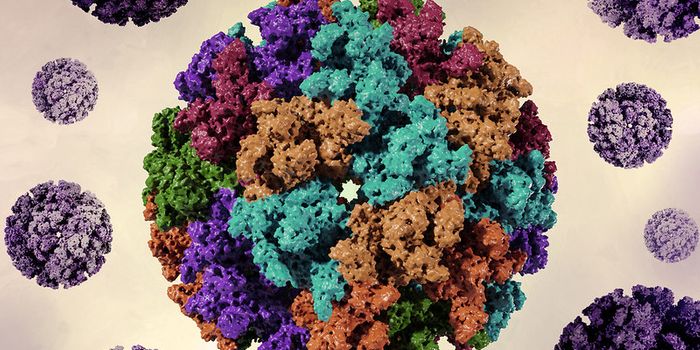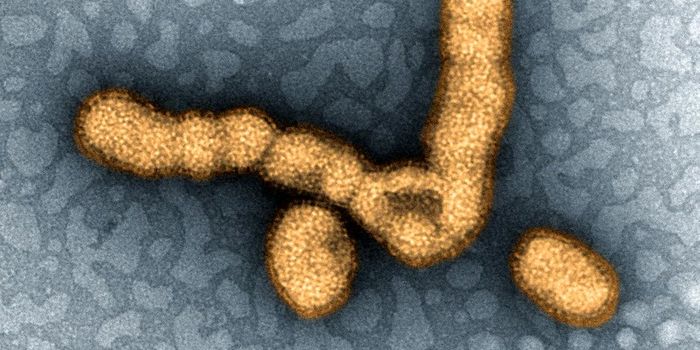In Frogs, Microbiome Disruption in Youth Negatively Impacts Adult Health
Microbes live in symbiosis with animals, and those microbial communities can have a big impact on the health of their hosts. There is plenty of recent research linking human health to the microbiome, and now researchers have used a frog model to investigate this connection. Their work has shown that there is a critical window during development that affects the ability of adult frogs to fight off parasitic gut worms. This work, reported in Nature Communications, shows how disruptions to the gut and skin microbiomes in the young life of frogs affect their immunity later in life.
"Our study found that a disruption of bacteria in tadpoles has enduring negative effects on how adult frogs deal with their parasite," explained Sarah Knutie of the University of Connecticut, who led the work. "These results suggest that preventing early-life disruptions of bacteria by factors such as nutrition, antibiotics, and pollution, might confer protection against diseases later in life."
The researchers think that this work has implications for humans and that it can help reveal the nature of the connection between our microbiomes and our health. Previous work has indicated that when mammals experience disruption to their microbiome in early life, the immune system can become hyper-reactive. Such an overactive immune system can cause lots of problems, like allergies or autoimmune diseases.
For this study, researchers raised tadpoles in several different kinds of environments to develop a variety of microbial communities in and around the animals. The tadpoles were raised in sterile pond water without additives, sterile pond water with short-term antibiotics, sterile pond water with long-term antibiotics, or natural pond water. After the tadpoles developed into Cuban tree frogs, the researchers exposed them to parasites.
In adult frogs that carried reduced diversity among their bacteria as tadpoles, there were three times more parasites compared to adults without microbiome disruption as tadpoles. This data suggests that if disruptions to the microbiome are prevented, infection risk might be reduced later in life.
"We found that the relative abundance of certain bacteria ... in juveniles was positively correlated with parasite resistance in adulthood,” explained the researchers.
Check out the video above from Johns Hopkins University to learn more about how the human gut microbiome is connected to our health and well-being.
Sources: AAAS/Eurekalert! Via University of Connecticut, Nature Communications









